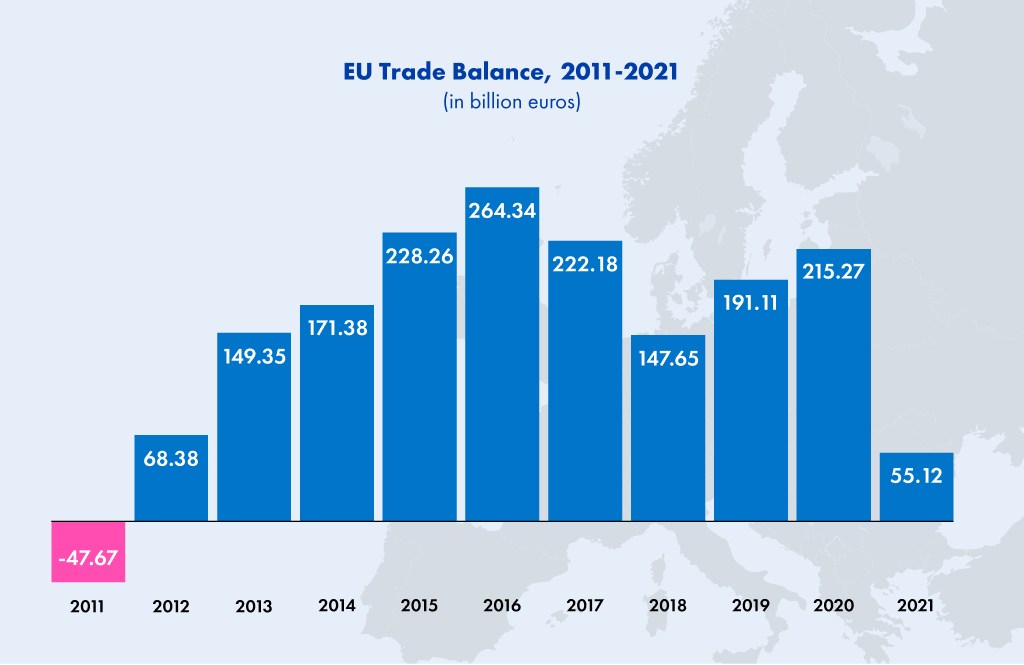Issue #122
Guten Morgen! Welcome to another edition of the Krautshell! This week, our esteemed guest contributor and President & CEO of the American Council on Germany, Dr. Steven E. Sokol, sheds light on a long-running immigration debate in Germany, giving some important context and describing the steps forward. In addition, check out our main articles about the drama in Germany’s governing coalition, the latest (rather high profile) victim in the Qatargate corruption scandal, and the potential EU-wide significance of the upcoming Greek elections. Finally, enjoy Anna’s sharp take on this week’s record-breaking 30-hour coalition committee – and what that says about the state of Germany’s government. Have a great weekend! Anna Szilvia We Are All Friends And Everything Is Fine We like to complain that politics is made so unattractive that many people simply don’t care. That’s why the Krautshell team hereby officially proposes to simply turn German politics into a reality soap. Given the success of shows like “Too Hot to Handle”, that should be a no-brainer. And if a camera had been present at the German government’s so-called coalition committee, the format in which the governing parties sort out their differences and agree on the program, there would certainly have been some footage. We have often reported on the difficulties and conflicts in the traffic light coalition of SPD, FDP and Greens. The latest coalition committee confirms this. Beginning last weekend, negotiations went on for 30 hours almost without interruption (or sleep) until this week. Compromises were sought, lines of conflict were sounded out – you name it. The breaking point of this coalition seems to be climate protection. For the Greens, the party whose existence is based on climate protection, everything is going too slowly. They propose measures; most recently, it was Vice Chancellor and Economics Minister Habeck who presented a draft law for confidential consultation with his partners that would ban the installation of new oil and gas heating systems and instead rely on heat pumps. This draft, which Habeck knew would not be popular with the public, was leaked directly to the press – presumably by a coalition partner. The anger was great, the debate completely unobjective. The dispute over this law was resolved at the committee, and planning and approval accelerations for the expansion of renewable energies, the rail network and the highways were agreed as well as a change in immigration law (see the Guest House’s View). After that, everyone was visibly eager to demonstrate unity again and make the results look good. However, the impression that this coalition would like to, but is not really able to work (with each other), is becoming increasingly solidified. Or to put it in terms of a reality soap opera: perhaps one of the participants will soon cheat on their partner. The Qatargate Saga Continues…Now Starring: the European Commission The Qatargate scandal claims its next political victim. However, the scene of the crime this time around is not the European Parliament, but the European Commission. Henrik Hololei, Director-General of the European Commission’s transport department, resigned this week from his post after heavy criticism for accepting free flights from Qatar while his department negotiated a major aviation deal with the Gulf state. Which – according to an official statement by the Commission – was in accordance with internal compliance rules. Rules, which were later changed after the revelations surfaced… For everyone across the great pond who needs a little reminder of what the whole Qatargate story was about: in December 2022, Vice-President of the European Parliament Eva Kaili was arrested for being part of a network of people who accepted money to advocate in favor of Qatar. Out of all the institutions, the European Parliament saw itself confronted with what many in the European political bubble call the “most serious”, “most-shocking” corruption case in recent years. The same Parliament, which likes to boast about its own transparency and criticizes the Council and the Commission for their lack of transparency. While the scandal was unfolding, the other two institutions pursued one strategy above all: keeping a low profile. One Council official told Politico in December “Really this is an issue for the Parliament. We expect to get a debrief from Metsola, but nothing more.” Well, looks like with the case of Henrik Hololei, another player has entered the game. After his resignation, OLAF (no, not the German Chancellor, but the European Anti-Fraud Office) announced it had opened an investigation into the matter. With the European elections coming up in 2024, the scandal unfolds at a conceivably bad moment in time. The European elections have historically suffered from low voter turnout while the European Union has always been accused of opacity and being a “democratic vacuum”. Arguably, these new scandals will not help get rid of this image. Balkan Briefing: Greek Elections, and Why You Should Know About Them Greece may not be a major European economic power, and Greek politics may not be on your early morning reading list, but there are good reasons to follow developments in Athens over the coming months (more on this below). For now, here’s some background: Prime Minister Kyriakos Mitsotakis has called to the polls on 21 May following his government’s four-year term in power, and the race is looking increasingly tight between his center-right New Democracy (ND) party and Syriza, the main left-wing opposition force under former Prime Minister Alexis Tsipras (for those who have heard this name but don’t quite know where, here’s a refresher). Mitsotakis – the Harvard-educated pro-business “steamroller” who presents himself as a reformer – enjoyed a comfortable lead until a few months back, when his government became embroiled in a major spy scandal aimed at a prominent opposition figure and directly incriminating the Prime Minister’s office; and, more recently, a tragic train accident which left 57 dead and led to accusations of state neglect and underinvestment in infrastructure. In other words, what originally seemed a solid reelection majority has become a real nailbiter. Why is this important? Two reasons, neither of which are immediately obvious. Firstly, New Democracy is a member of the European People’s Party (EPP) parliamentary group in Brussels and a major backer of Manfred Weber, the EPP leader and ambitious former Spitzenkandidat for the post of Commission President in 2019. In fact, Mitsotakis and Austrian Chancellor Karl Nehammer are reputed to be Weber’s key backers, and high-ranking EPP officials have (anonymously) claimed that the Greek elections could to a large extent determine Weber’s political future within in the EPP. With European elections coming up next year, this is not a trivial matter. Then there’s the issue of Ukraine. While Mitsotakis has been a firm supporter of the Kyiv government, opposition leader Tsipras has condemned the government’s stance, calling for diplomacy and a “modern peace movement” in between the pro-Western and pro-Russian positions. What’s more, polls suggest that Greeks have the lowest support for the EU’s Ukraine policies among all member states. The race is still open, but keep this in mind should Tsipras become the next Greek Prime Minister. Source: Statista THE (GUEST) HOUSE’S VIEW: by Dr. Steven E. Sokol, President and CEO of the American Council on Germany Germany is Facing a New Migration Challenge – Schaffen Sie das? The war in Ukraine and the prospect of an energy crisis have dominated much of the news in recent months – but percolating below the surface have been other issues. Among them have been demographic trends and an aging population as well a spike in migration. The debates this week over changes to Germany’s immigration law have once again put this topic center stage. In 2022, Germany’s population hit a high of 84.3 million – driven largely by a record increase in net migration including displaced people from Ukraine. But, there are still labor shortages as older workers retire. According to some estimates, in 12 years close to seven million skilled workers could be missing. Germany’s shortage of skilled workers has led the governing coalition of Social Democrats, Greens, and Free Democrats to reassess the county’s immigration policy. Last week, the Cabinet approved a proposal which was put forward by the Ministries of Interior and Labor to attract skilled labor and make it easier for workers (and their families) to stay. The proposed legislation still needs to be ratified by the Bundestag and the Bundesrat. Putting Things in Perspective Trying to attract talent and labor from abroad is nothing new. In the 1950s and 1960s, West Germany relied on foreign or migrant workers (Gastarbeiter) to address the post-World War II labor shortage. What initially started as temporary employment through bilateral recruitment agreements between Germany and a number of countries beginning with Italy, then Spain, and with the largest group coming from Turkey, became something more permanent. The influx of foreign workers led to micro-societies that had difficulty integrating into West German society. Many of the “guest workers” never left – and their contribution to the country’s post-war economy helped achieve the Wirtschaftswunder or “economic miracle.” In 2000, under the leadership of CDU politician Rita Süssmuth and Minister of the Interior Otto Schily (SPD) there was a push for targeted immigration to bring skilled labor from abroad. They were making the case that Germany needs to be open to immigration at a time when some Christian Democrats were using slogans like “Kinder statt Inder” (loosely translated as “More children rather than Indians”) and “Mehr Ausbildung statt mehr Einwanderung!” (“More education instead of more immigration!). The term Einwanderungsland (immigration country) has been controversial in Germany. It was assumed that the Gastarbeiter were temporary and that they would leave – even if reality proved otherwise. The new legislation currently being debated is a step in the right direction. Recent Trends It has been eight years since Chancellor Angela Merkel famously said “Wir schaffen das!” (“We will manage this!”) as over a million refugees and asylum seekers arrived in Germany from the Middle East because of the war in Syria. The initial hope was that some of these refugees could help address the labor shortage, but that has not happened. The war in Ukraine has caused an even greater number of displaced people: According to the UNHCR 8,087,952 refugees from Ukraine were recorded across Europe. As of last month, the German Federal Ministry for the Interior reported that 1,072,248 Ukrainian refugees have been registered – and the actual number is thought to be much higher. Ukrainians have been more warmly received in comparison to refugees from Africa or the Middle East. This is partly because most of the Ukrainian displaced people are women and children (rather than young men) and some consider the Ukrainians to be more “culturally aligned.” Many of the Ukrainians have also indicated that they want to return home when it is safe to do so. This has led to a debate in Germany – and indeed across Europe – regarding how refugees from war-torn regions are treated and how there has been more discrimination against those from MENA countries. Berlin certainly sees this as a European challenge that requires a collective response. German Minister of the Interior Nancy Faeser has advocated for a fairer distribution of Ukrainian refugees across Europe and recommended that countries which have not received as many refugees take more so that a disproportionate pressure does not fall on other member states. Last month in a speech before the Bundestag, Chancellor Olaf Scholz said that Germany will need to curb “irregular migration” – indicating that “effective answers to the challenges of flight and migration will only be possible by means of a European framework.” The Political Debate The governing coalition’s new immigration proposal is playing a role in the political debate. Friedrich Merz, the head of the opposition Christian Democrats, was opposed to Merkel’s liberal migration policy. In the 14 months since he has been the party head, he has moved the CDU to the right. Long a proponent of German Leitkultur (leading culture) in the 2000s – which believed that immigrants should fully integrate into Germany’s culture by abandoning their traditions from their countries of origin – Merz has been more measured, but earlier this year he commented that youth from Arab countries who do not stick to the rules in Germany are having fun making fun of this country. In most national polls, the CDU has been the most popular party – with a 10 percent lead over the SPD. And, in Berlin’s February repeat election the CDU won comfortably with over 28 percent of the vote. According to some polls security and order were the top issue following chaotic and violent scenes on New Year’s Eve, which were fed by xenophobic tones. With state elections in Bavaria, Bremen, and Hessen slated for this year, there are some concerns that the subject of immigration and naturalization may fuel a political culture war and create more polarization in upcoming elections. The Guest House’s View: Immigration Policy is One Thing; Integration is Another Germany clearly needs skilled workers to bolster its shrinking workforce. The Federal Labor Office calculated that Germany needs 400,000 workers from abroad each year to fill jobs in areas such as raw material extraction, production and manufacturing, information technology, agriculture, etc. The proposal by the government is an important step forward. However, it also needs to work on how to welcome those coming from abroad and make them feel at home. A path to citizenship is key, but it will take more than that for Germany to truly become an Einwanderungsland. NOT A LOVE MARRIAGE As you know, Germany is governed by the so-called traffic light coalition, based on the party colors of its members. The Social Democrats, the Greens and the Liberals, anything but a love marriage. It was clear from the beginning that their policies would be paved with good intentions and bad compromises. And even more so after a coalition treaty was published that lacked the usual detailed masterplan for the upcoming years, but was rather full of intentions, big words and resolutions. From the start it was bumpy. While the daily cooperation between the parties is full of discord, sometimes an issue surfaces to the broad media and erupts for everyone to witness. New debt and finance policy, nuclear power, combustion engines, heating: Just some examples where the parties have incongruous, and partly ideologically driven, positions. But still, the country needs to be governed, so to clear out some of the disputatious points, the coalition committee gathered. A body designed to set the path of the coalition, discuss draft legislations, and yes, solve conflicts between the governing parties. They had tons to do. 30 hours to sort out differences, mostly in climate and energy questions and to find a common ground. Restoration of highways, funds for the German rail, facilitation of e-fuels, and an agreement to stop to try to reduce the speed limits on highways. At the press conference afterwards, each party was eager to praise its own wins and negotiating skills. So, well done? Here’s another way to tell the story: Party leaderships lamenting internally on how they have been duped. An absent chancellor who fails to give any guidance. Costly results without any real impact. And clear signs that the next conflict in the coalition is already brewing. This construct will never work. But a break would mean new elections. And no party wants to risk that, looking at the current polls. So they keep on grinding, as tiresome and frustrating it might be for all of them. At least they have one result to be proud of: Having been part of the longest session of the coalition committee EVER. 30 hours, no sleep. No one can take away an experience that even Chancellor Scholz considers team building. Issue #122


FIRST, SOME SOLID INTEL:
TAKE A BREAK, GIVE YOUR EYES A REST.


LONG STORY SHORT:
WHAT’S ON OUR MINDS:





